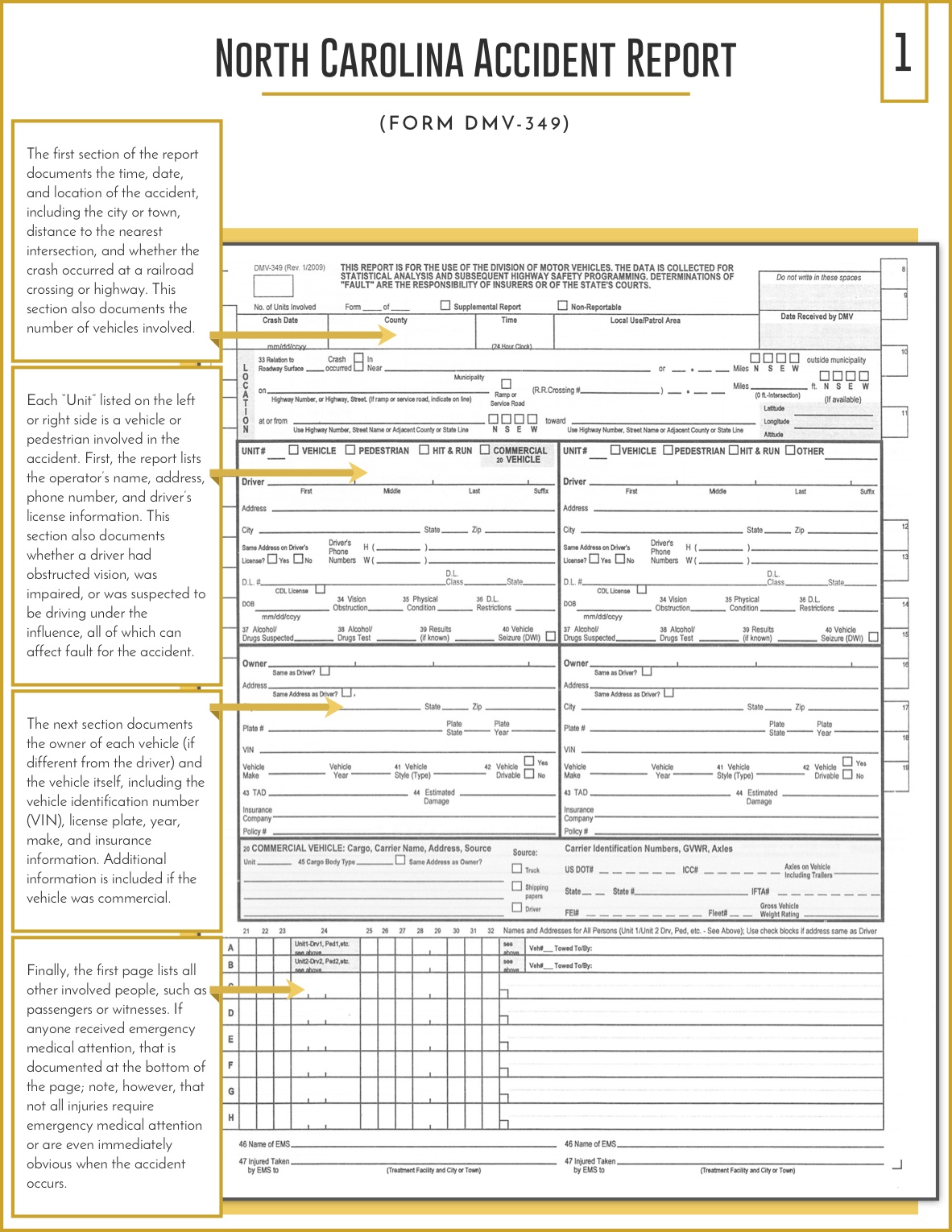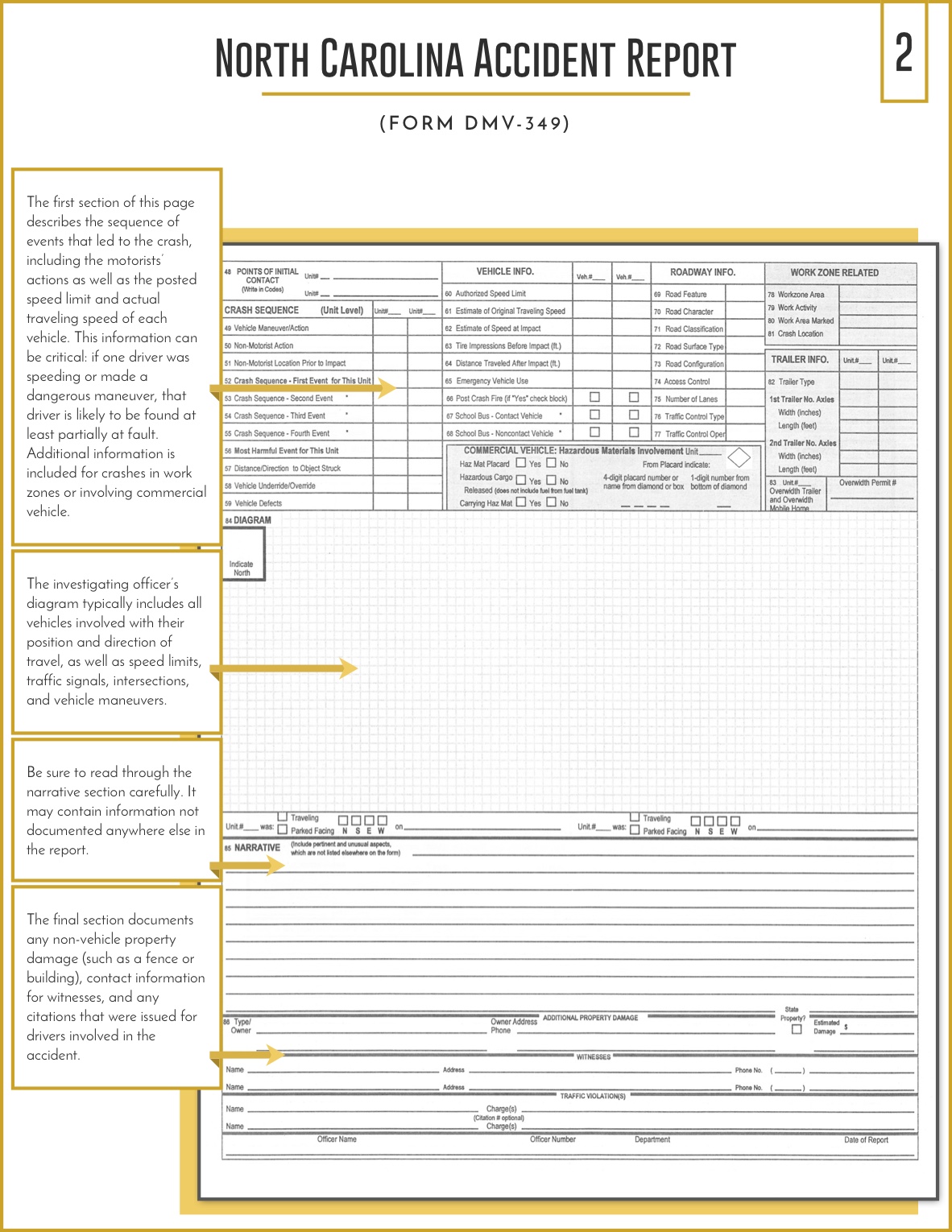In a divorce, the laws of equitable distribution distinguish marital property from separate property. Technically, only marital property, that is, proper...
When car accidents happen in North Carolina, the investigating police officer fills out a report, called form DMV-349. Although the report is primarily intended for statistical and safety purposes, it nevertheless can play an important role in an accident claim. Insurance companies use the information in the report as part of their determination of fault for an accident – and in a contributory negligence state, where even a small percentage of fault can bar you from recovering, that’s potentially critical.
Obtaining and carefully reviewing your accident report is critical to help understand your legal rights and options. We’ve prepared a brief guide to the report.
North Carolina Accident Report (Form DMV-349)
https://www.nhtsa.gov/sites/nhtsa.dot.gov/files/documents/nc_par_dmv-349_rev1_2009.pdf

Page 1
The first section of the report documents the time, date, and location of the accident, including the city or town, distance to the nearest intersection, and whether the crash occurred at a railroad crossing or highway. This section also documents the number of vehicles involved.
Click here to download a printable PDF of How to Read Your North Carolina Car Accident Report.
Each “Unit” listed on the left or right side is a vehicle or pedestrian involved in the accident. First, the report lists the operator’s name, address, phone number, and driver’s license information. This section also documents whether a driver had obstructed vision, was impaired, or was suspected to be driving under the influence, all of which can affect fault for the accident.
The next section documents the owner of each vehicle (if different from the driver) and the vehicle itself, including the vehicle identification number (VIN), license plate, year, make, and insurance information. Additional information is included if the vehicle was commercial.
Finally, the first page lists all other involved people, such as passengers or witnesses. If anyone received emergency medical attention, that is documented at the bottom of the page; note, however, that not all injuries require emergency medical attention or are even immediately obvious when the accident occurs.

Page 2
The first section of this page describes the sequence of events that led to the crash, including the motorists’ actions as well as the posted speed limit and actual traveling speed of each vehicle. This information can be critical: if one driver was speeding or made a dangerous maneuver, that driver is likely to be found at least partially at fault. Additional information is included for crashes in work zones or involving commercial vehicle.
The investigating officer’s diagram typically includes all vehicles involved with their position and direction of travel, as well as speed limits, traffic signals, intersections, and vehicle maneuvers.
Be sure to read through the narrative section carefully. It may contain information not documented anywhere else in the report.
The final section documents any non-vehicle property damage (such as a fence or building), contact information for witnesses, and any citations that were issued for drivers involved in the accident.





